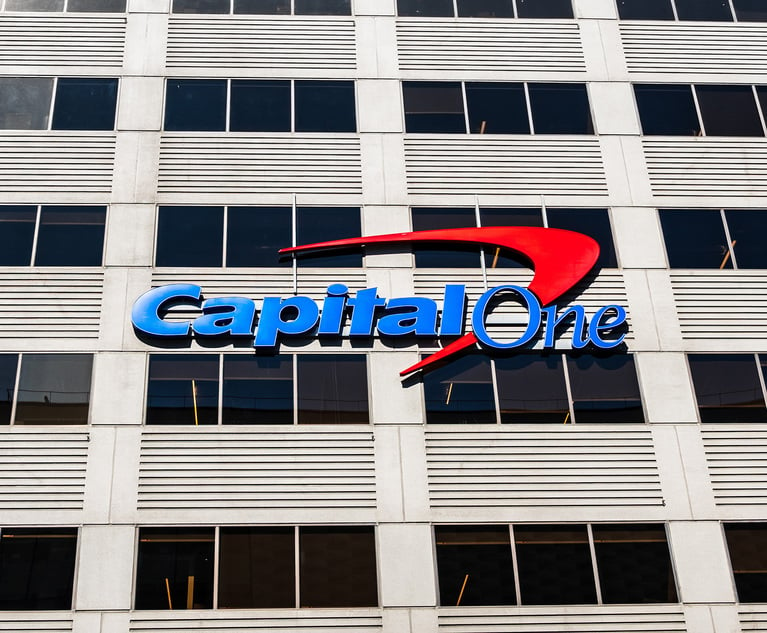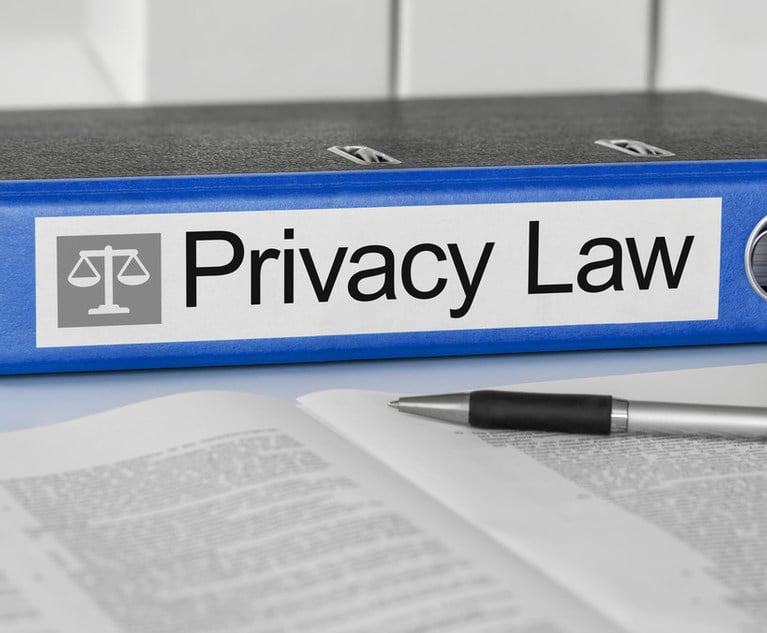How to Address Evolving Privacy Regulations During Discovery
For all the coverage that privacy regulations are meant to provide, there is precious little guidance about how to protect private information, and there is very little legal precedent to guide our practices.
September 29, 2021 at 02:34 PM
8 minute read
In the face of growing data privacy regulations, appetites are growing for solutions that guard protected private information with the same gravitas given to protecting privilege. The challenge? Current privacy regulations are, on the one hand, broad and complex, and on the other, vague and underdefined. This makes implementing systems for preventing the inadvertent disclosure of protected private information an important task.
Jurisdictions around the globe have introduced legislation to serve many similar, but sometimes very different purposes. These range from preserving an individual's most basic right to privacy and the protection of their personally identifiable information (PII), such as with GDPR and CPRA, as well as their private health information (PHI), as with HIPAA. Some legislation is enacted to safeguard minors, while other legislation protects people in their role as consumers. Overlapping with this is the Payment Card Industry Data Security Standard (PCI-DSS).
This content has been archived. It is available through our partners, LexisNexis® and Bloomberg Law.
To view this content, please continue to their sites.
Not a Lexis Subscriber?
Subscribe Now
Not a Bloomberg Law Subscriber?
Subscribe Now
NOT FOR REPRINT
© 2025 ALM Global, LLC, All Rights Reserved. Request academic re-use from www.copyright.com. All other uses, submit a request to [email protected]. For more information visit Asset & Logo Licensing.
You Might Like
View All
'Reverse Robin Hood': Capital One Swarmed With Class Actions Alleging Theft of Influencer Commissions in January

FTC's Info Security Action Against GoDaddy Sends 'Clear Signal' to Web Hosting Industry: Expert

Judge Awards Over $350K in Attorney Fees in Data Breach Class Action Settlement
3 minute readTrending Stories
- 1GOP Now Holds FTC Gavel, but Dems Signal They'll Be a Rowdy Minority
- 2Houston-Based Law Firm Overcomes Defamation Suit for Website Warning
- 3The Time Is Now for Employers to Assess Risk of Employees’ Use of DeepSeek
- 4Big Law Partner Co-Launches Startup Aiming to Transform Fund Formation Process
- 5How the Court of Public Opinion Should Factor Into Litigation Strategy
Who Got The Work
J. Brugh Lower of Gibbons has entered an appearance for industrial equipment supplier Devco Corporation in a pending trademark infringement lawsuit. The suit, accusing the defendant of selling knock-off Graco products, was filed Dec. 18 in New Jersey District Court by Rivkin Radler on behalf of Graco Inc. and Graco Minnesota. The case, assigned to U.S. District Judge Zahid N. Quraishi, is 3:24-cv-11294, Graco Inc. et al v. Devco Corporation.
Who Got The Work
Rebecca Maller-Stein and Kent A. Yalowitz of Arnold & Porter Kaye Scholer have entered their appearances for Hanaco Venture Capital and its executives, Lior Prosor and David Frankel, in a pending securities lawsuit. The action, filed on Dec. 24 in New York Southern District Court by Zell, Aron & Co. on behalf of Goldeneye Advisors, accuses the defendants of negligently and fraudulently managing the plaintiff's $1 million investment. The case, assigned to U.S. District Judge Vernon S. Broderick, is 1:24-cv-09918, Goldeneye Advisors, LLC v. Hanaco Venture Capital, Ltd. et al.
Who Got The Work
Attorneys from A&O Shearman has stepped in as defense counsel for Toronto-Dominion Bank and other defendants in a pending securities class action. The suit, filed Dec. 11 in New York Southern District Court by Bleichmar Fonti & Auld, accuses the defendants of concealing the bank's 'pervasive' deficiencies in regards to its compliance with the Bank Secrecy Act and the quality of its anti-money laundering controls. The case, assigned to U.S. District Judge Arun Subramanian, is 1:24-cv-09445, Gonzalez v. The Toronto-Dominion Bank et al.
Who Got The Work
Crown Castle International, a Pennsylvania company providing shared communications infrastructure, has turned to Luke D. Wolf of Gordon Rees Scully Mansukhani to fend off a pending breach-of-contract lawsuit. The court action, filed Nov. 25 in Michigan Eastern District Court by Hooper Hathaway PC on behalf of The Town Residences LLC, accuses Crown Castle of failing to transfer approximately $30,000 in utility payments from T-Mobile in breach of a roof-top lease and assignment agreement. The case, assigned to U.S. District Judge Susan K. Declercq, is 2:24-cv-13131, The Town Residences LLC v. T-Mobile US, Inc. et al.
Who Got The Work
Wilfred P. Coronato and Daniel M. Schwartz of McCarter & English have stepped in as defense counsel to Electrolux Home Products Inc. in a pending product liability lawsuit. The court action, filed Nov. 26 in New York Eastern District Court by Poulos Lopiccolo PC and Nagel Rice LLP on behalf of David Stern, alleges that the defendant's refrigerators’ drawers and shelving repeatedly break and fall apart within months after purchase. The case, assigned to U.S. District Judge Joan M. Azrack, is 2:24-cv-08204, Stern v. Electrolux Home Products, Inc.
Featured Firms
Law Offices of Gary Martin Hays & Associates, P.C.
(470) 294-1674
Law Offices of Mark E. Salomone
(857) 444-6468
Smith & Hassler
(713) 739-1250










